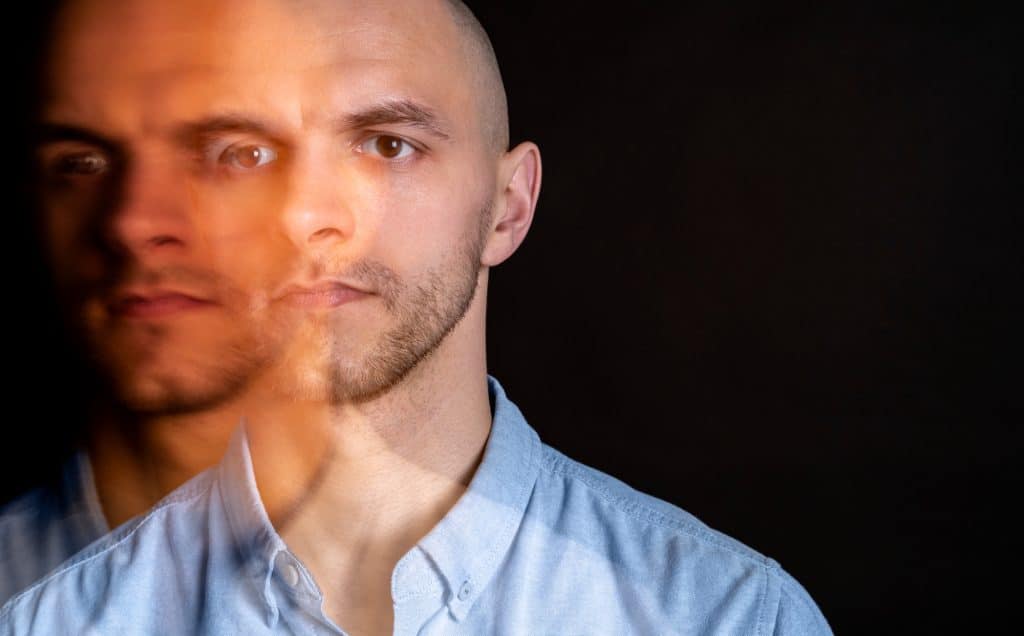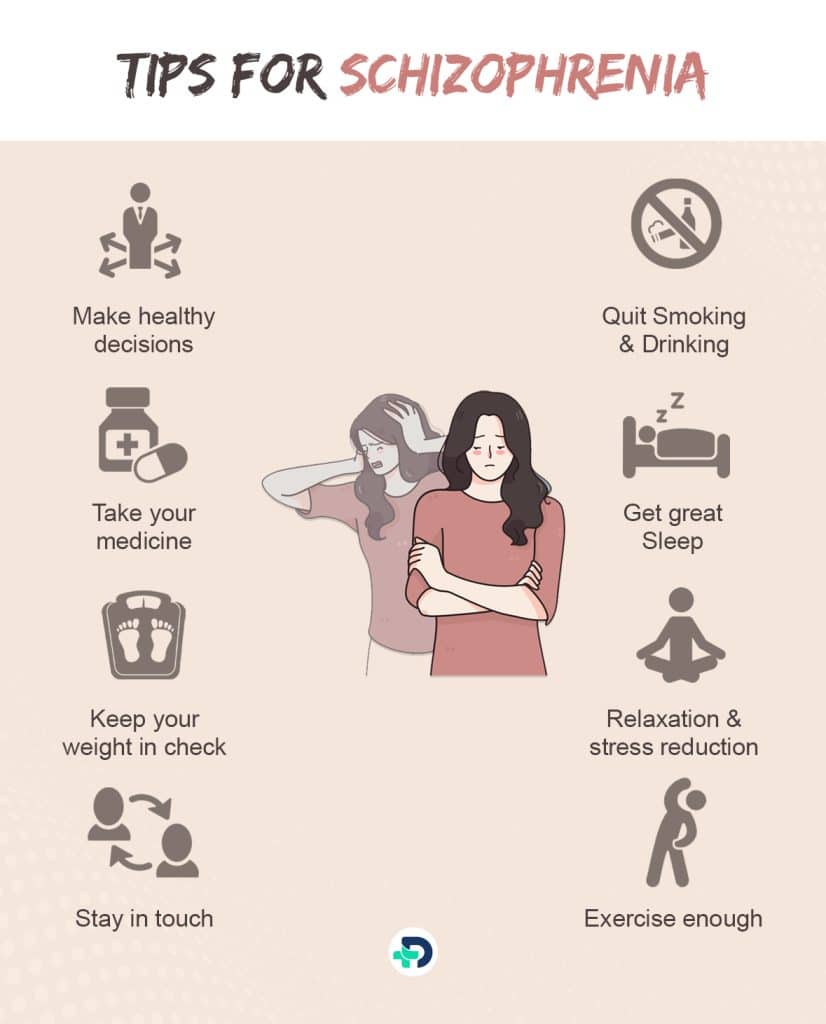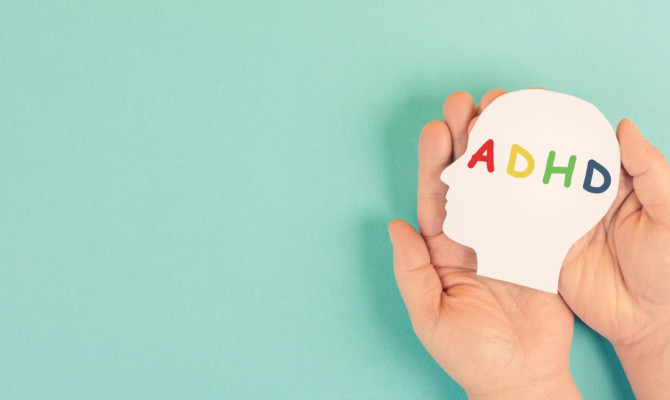What is Schizophrenia: Causes, Symptoms and Treatment

- Schizophrenia
- 22 Aug 2023
Overview
What is Schizophrenia?
Schizophrenia is a long-term, serious mental disease that changes how a person believes, feels, and acts. Schizophrenia patients have the appearance of being disconnected from reality. Schizophrenia, while less common than other mental disorders, can cause more harm due to its symptoms.
People with schizophrenia often shut themselves off from the outside world, act out of confusion and fear, and try to kill themselves, especially during manic episodes, times of sadness, and the initial six months of starting with treatment.

The definition of Schizophrenia typically includes:
Delusions
- Delusions are set false ideas that someone holds even though there is clear or logical proof that they are not true.
Hallucinations
- People who have hallucinations hear, see, smell, taste, or feel things that aren’t there. Auditory hallucinations i.e. “hearing voices,” are common in schizophrenia.
Psychosis
- Psychosis means detachment from reality due abnormality in processing within the brain.
Disorganized speech and thought
- It relates to speech and thoughts that are puzzled and are illogical.
Causes
Causes of Schizophrenia
The etiology of schizophrenia remains unclear. Several factors, including physical, psychological, genetic and environmental effects, have been found to develop schizophrenia.
Some individuals are predisposed to schizophrenia, and an anxious or emotional life experience may set off a psychotic episode.
Genetics
- Schizophrenia exhibits familial patterns, yet it is believed that not a single gene can be considered as the sole cause. It is possible that various gene combinations increase the chances of developing schizophrenia.
- In the situation of identical twins, if one twin has schizophrenia, the chances of the other twin also getting the disorder is approximately 50%. In the case of non-identical twins, who possess distinct genetic compositions, the chances of the other twin developing schizophrenia when one twin is affected is approximately 1 in 8.1Causes| Researched based study from Nlm.nih.gov
Brain development
- Research on individuals diagnosed with schizophrenia has revealed some variations in brain structure. It may be due to cerebral dysfunction.
Neurotransmitters
- Neurotransmitters facilitate communication between neurons by transmitting chemical signals.
- Individuals with schizophrenia show variations in the levels of specific neurotransmitters within their brain.
- Certain medications that reduce the levels of specific neurotransmitters, such as dopamine, have been effective in reducing symptoms of schizophrenia.
Complications during pregnancy and childbirth
Research indicates a positive association between the development of schizophrenia and the occurrence of complications during the prenatal and perinatal periods. These complications may include:
- Low birthweight is a condition characterized by a below-average weight at birth.
- Premature labor
- Birth asphyxia
Triggers
Triggers of Schizophrenia
Triggers can precipitate the development of schizophrenia in individuals who possess a predisposition to the disorder.
The following items are included:
Stress
The primary psychological triggers associated with schizophrenia are stressful life events, including:
- Bereavement
- Job loss, homelessness, and divorce
- The end of a romantic partnership
- Physical, sexual, or emotional abuse
Drug abuse
- Research has indicated that the use of drugs, specifically cannabis, LSD, cocaine or amphetamines, is associated with a risk of developing schizophrenia, psychosis, or related mental disorders.
Types
Types of Schizophrenia
Schizophrenia has various subtypes:
- Paranoid schizophrenia
- Hebephrenic schizophrenia
- Catatonic schizophrenia
- Undifferentiated schizophrenia
- Residual schizophrenia
- Simple schizophrenia
- Unspecified schizophrenia
- Cenesthopathic schizophrenia
Paranoid schizophrenia
- This schizophrenia variant is the most common. Symptoms include: Hallucinations, delusions, while speech and emotional well being remain unaffected.
Hebephrenic schizophrenia
- Disorganized schizophrenia, also referred to as hebephrenic schizophrenia, is commonly seen during the age range of 15 to 25 years. Symptoms are disorganized behaviors and thoughts, transient delusions and hallucinations. People suffering from hebephrenic schizophrenia have expressionless faces.
Catatonic schizophrenia
- It is one of the rarest schizophrenia, identified by limited, unusual and jerky movements. People often switch between hyperactive or very idle. These people tend to mimic the movement and speech of others.2Types| Researched based study from Nlm.nih.gov
Undifferentiated schizophrenia
- This type shows signs of hebephrenic, paranoid or catatonic schizophrenia, yet it does not clearly align with any one of these types exclusively.
Residual schizophrenia
- It may be diagnosed in people who have a history of psychosis but currently show only negative symptoms like lack of concentration, poor memory, poor hygiene and slow movements.
Simple schizophrenia
- The diagnosis of simple schizophrenia is very rare in the UK. The negative symptoms like poor memory, decreased movements and lack of concentration are more common and they worsen over time. Then the positive symptoms such as hallucinations, delusions and disorganized, thinking or rarely seen
Cenesthopathic schizophrenia
- It refers to a specific subtype of schizophrenia characterized by the presence of unusual bodily sensations or bodily.
Unspecified schizophrenia
- It refers to a diagnosis of schizophrenia that does not meet the criteria for any specific subtype of the disorder.
Symptoms
Symptoms of Schizophrenia
Schizophrenia is often characterized by “positive symptoms” and “negative symptoms”. Positive symptoms are additional experiences that occur alongside reality, while negative symptoms impair functional abilities.
Positive symptoms of Schizophrenia:
- They are characterized by: delusions, disorganized speech, hallucinations, disorganized behavior.
- The symptoms of schizophrenia show variability, including differences in both the nature and intensity of the symptoms, these symptoms may also undergo changes throughout the course of the disorder.
Negative symptoms of schizophrenia
- You may experience difficulties in effectively organizing and engaging in various activities, such as grocery shopping.
- Experiencing difficulty in anticipating and deriving pleasure from daily activities.
- Speaking with a monotonous tone and having minimal facial expressions.
- Social avoidance or engaging in socially awkward behavior.
- Experiencing significant fatigue and engaging in prolonged periods of sedentary behavior. Catatonia is a rare condition characterized by temporary cessation of movement and speech in severe cases.
- Low sex drive.
- Lack of awareness of surroundings.
Disorganized Symptoms
Common indicators of disorganized speech are:
- Loose associations: Rapid and disconnected transition from one topic to another, lacking any logical or link between the thoughts.
- Neologisms: It refers to newly coined words or phrases that are significant only to the one who said it.
- Perseveration: It refers to the act of repetitively using the same words and statements, resulting in the continuous repetition of a particular message.
- Clang: Unnecessary use of rhyming words is called clang.
Disorganized behavior presented as:
- A decrease in overall daily functioning.
- Unforeseeable or unsuitable emotional reactions.
- Behaviors of purposeless nature.
- The absence of resistance and impulse control.
Prevalence
Prevalence
The estimated prevalence 4Prevalence| Researched based study from Nlm.nih.gov of schizophrenia in the U.S. population ranges from 0.6% to 1.9%.Also, an analysis has determined that the yearly incidence of diagnosed schizophrenia in the United States is 5.1 cases per 1,000 individuals.
- Men and women are equally affected by schizophrenia.
- Men often exhibit symptoms sooner than women do.
- All ethnic groups across the globe experience it at about the same rates.
- Schizophrenia often does not strike beyond the age of 45.
Diagnosis
Diagnosis of Schizophrenia
The criteria for diagnosis of schizophrenia include:
- Delusional symptoms
- Auditory or visual Hallucinations
- Disorganized thoughts
- Disorganized speech
- Apathy
- Significant problem in functioning at work or school
Screening for mental illness
Schizophrenia can’t be tested for in a single way, and most of the time, a mental health expert has to look at the person to figure out what’s wrong.
If you are also experiencing other signs, you may have a connected mental illness, such as:
- Bipolar disorder: People with bipolar disorder go through periods of hallucinations, high feelings and a lot of activity and excitement (mania) and periods of deep sadness.
- Schizoaffective disorder: This is called a form of schizophrenia consisting of schizophrenia and bipolar disorder. It can be caused by stress.
- You may also be checked for PTSD (post traumatic stress disorder), sadness, anxiety, and drug use.
How to diagnose children and teens with schizophrenia?
- When a child or teen has their first case of schizophrenia, they should be sent to a psychiatrist service right away.
- This should be either children and young people’s mental health services 3Diagnosis| Researched based study from Nice.org.uk (CYPMHS) for people of 17 years or an early treatment for people 14 years and older that includes a consulting psychiatrist with training in children and young people’s mental health.
Treatment
Treatment of Schizophrenia
Medications
Medication can help with schizophrenia symptoms like delusions, hallucinations, and disorganized thinking by obstructing certain brain chemical receptors. The main medications for schizophrenia are antipsychotics.
There are two types: typical and atypical.
Atypical antipsychotics
- Atypical antipsychotics are also known as second generation antipsychotics. These medications have fewer serious side effects.
- There are different kinds of atypical antipsychotics: Abilify (aripiprazole), Geodon (ziprasidone) etc.
- Clozaril is a unique type of antipsychotic called clozapine. Clozaril is prescribed when other antipsychotics don’t work or when someone with schizophrenia has thoughts of suicide.
Typical Antipsychotics
- First-generation antipsychotics were the typical antipsychotics. One of the worst side effects is the appearance of a movement disorder called tardive dyskinesia (TD).
- People with tardive dyskinesia may present with movements in their muscles, tongue, eyes, lips, and jaws. Doctors usually prescribe typical antipsychotics if atypical antipsychotics haven’t worked.
- Typical antipsychotics are: Haldol (haloperidol), Navane (thiothixene), Thorazine (chlorpromazine) and Stela zine (trifluoperazine)
Antipsychotics can cause heart problems, so talk to your doctor about the risks and get regular checkups. Do not stop antipsychotic medication without consulting your doctor.
Alternative treatment options
- Transcranial direct current stimulation (tDCS)- is a non-invasive method in which probes are attached on the head which send a very weak direct electrical current through the brain cortex. It might help the brain work better by stopping competing brain areas from working. It has also been studied in people with Alzheimer’s and Parkinson’s diseases.
- Combination therapy and augmentation therapy- for people who don’t respond well to clozapine. Both boost therapy (with ECT or a mood stabilizer) and combination treatment (with antipsychotics) can be thought about.
- Talking treatments- sometimes called psychological treatments, talking therapies help you look at your ideas and actions.
- CBT (cognitive-behavioral treatment)-tries to help you see how your thoughts, feelings, and deeds are connected. In CBT, your symptoms and how they affect your life, as well as your thoughts and beliefs- will be looked at.
- Art therapy-It can help you connect with other people in new ways, show how you feel, accept your thoughts, and understand them.
- Family help-Family Intervention is when you and your family work with people who work in mental health to help you figure out how to deal with your relationships. This should be given to people with whom you live or who you see often. This could be done with the whole family or just one person.
- Early intervention teams-Are specialized NHS programs that help people who are just starting to show signs of schizophrenia. You might talk to therapists, psychologists, expert nurses, and support workers.
Tips

Self help and caregiving tips for Schizophrenia
Caring for someone with schizophrenia often takes extra effort and understanding. But your motivation can help them lessen the features of the condition and lower the chances of a relapse of schizophrenia if you are suffering with it. These tips will help you if you have schizophrenia.5Tips| Researched based study from Nlm.nih.gov
Help people make healthy decisions
- Managing schizophrenia well means making some changes to your life that can be hard to do on your own.
Quit smoking and drinking
- Almost half of people with schizophrenia are addicted to something, usually smoking or drinking.
- To help a loved one stop smoking, get rid of ashtrays and cigarettes from the house. Plan activities, like walks, so that your loved one can focus on healthier things. Stay upbeat and offer support. Don’t bring up times when your loved one has tried to quit but failed.
Keep your weight in check
- Many antipsychotics can slow down the metabolism and make people gain weight, which puts your loved one at risk for health problems that are linked to obesity. Diabetes and heart problems can be avoided, and your mood can even get better, if you eat well and move regularly.
- People with schizophrenia usually eat a lot of fat and not enough protein or fiber. Make sure the meals you make for your loved ones are low in fat and full of fruits and veggies. Encourage your loved one to work out for 30 to 40 minutes every day.
Get great sleep
- People with mental health problems like schizophrenia often don’t get enough sleep, have trouble sleeping, or sleep too much. Give your friend or family member a glass of milk or a healthy snack instead of booze, smokes, or coffee before bed.
To avoid a relapse
- The National Alliance on Mental Illness says that about half of the 2 million Americans who have schizophrenia can get better or have reduced symptoms with proper care. But about 20% of people with schizophrenia who are taking medicine for schizophrenia will have a relapse in less than a year.
Take your medicine
- Encourage your friend or family member to stick to his or her treatment plan and always take medicine as directed. Suddenly stopping a medicine can be dangerous.
Learn the signs of relapse
- Pay attention to what makes your loved one upset and when they show signs of schizophrenia. Changes in how you sleep, what you eat, or who you hang out with can be signs of a return of schizophrenic episode.
Relaxation and stress-reduction
- Doing things like yoga or tai chi on a regular basis can help lower stress and keep you from having an episode.
Learn about schizophrenia and teach others
- Learning about your illness can make you more likely to stick to your treatment plan, and it can also help your friends and family be more understanding and helpful.
- Ask about help from social services. These services help people find cheap homes, work, ways to get around, and do other things they need to do every day.
Stay in touch
- Work with your loved one’s health care team to find out how to stop relapses from happening. A good way to catch early signs of a return is for a person’s support group and health care team to talk to each other regularly.
Don’t Oversleep
- Don’t sleep during the day, and try to sleep at an acceptable time. About eight hours is what most people need. Set a morning alarm to wake up. If you don’t want to get out of bed right away because you don’t feel like it, try reading or listening to music in bed. Don’t just stay in bed and do nothing.
Exercise Enough
- Some studies show a link between exercise and sadness, but it is not yet clear that this is the case. But going for a walk will help you feel good. Every day, taking a short walk around the park in the fresh air is good, but if you can’t do that, try doing sit-ups and press-ups at home.
Outlook
The Outlook
Schizophrenia is a very complicated disorder that needs to be treated as soon as a manic episode starts to show signs. Schizophrenia can make it hard for someone to go to school or work, keep a routine, make friends, do daily jobs, or take care of themselves. People with schizophrenia can handle the disease and live full lives with consistent care and support which includes medicine, therapy, and social support.
Any feedback on this article?
 This Articles content was accurate
This Articles content was accurate Very Informative Article
Very Informative Article I have a question or a comment
I have a question or a comment
 This article contains inaccurate content
This article contains inaccurate content This article was not helpful
This article was not helpful I have a question or a comment
I have a question or a comment
We appreciate your helpful feedback!
Checkout our social pages
References
-
National Library of Medicine
Schizophrenia in identical twins | Causes
-
National Library of Medicine
A Clinical Review of the Treatment of Catatonia | Types
-
The National Institute for Health and Care Excellence
Psychosis and schizophrenia in children and young people: recognition and management | Diagnosis
-
National Library of Medicine
Schizophrenia: Overview and Treatment Options | Prevalence
-
National Library of Medicine
Self-Care Ability of Patients With Severe Mental Disorders: Based on Community Patients Investigation in Beijing, China | Tips



































